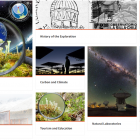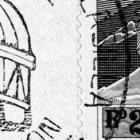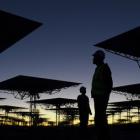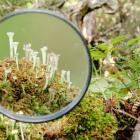Introduction: Making the Invisible Visible in the Natural Laboratories of Chile’s Extreme Zones
Introduction: Making the Invisible Visible in the Natural Laboratories of Chile’s Extreme Zones
The introduction to the virtual exhibition “From Hand Lenses to Telescopes: Exploring the Microcosm and Macrocosm in Chile’s Biocultural Laboratories.”
From Hand Lenses to Telescopes: Exploring the Microcosm and Macrocosm in Chile’s Biocultural Laboratories
Chile is a land drawn with the rhythm of nature itself. It is a natural laboratory that invites us to look up into the macrocosm and down into the microcosm. At both extremes of this long and narrow country, science activities have a major global impact. Today, over 50 percent of the world’s astronomical observations use the telescopes of the European Southern Observatory (ESO) and other institutions installed in the Atacama Desert in northern Chile. Complementarily, at its southern end Chile established the Cape Horn International Center for Global Change Studies and Biocultural Conservation (CHIC) to investigate the microcosms, from the largest organism, planet Earth, to the smallest ones. CHIC explores diverse forms of knowledge and values to understand and protect the biosphere in the context of global socio-environmental change. This virtual exhibition enhances the integration of the sciences, arts, and humanities through a novel partnership with the Rachel Carson Center for Environment and Society, inviting visitors to be enchanted across the multiple scales of the cosmos.
About the ExhibitionAbout the author
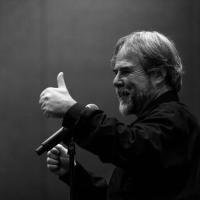
Cape Horn International Center for Global Change Studies and Biocultural Conservation, Chile
Show moreRicardo Rozzi is a Chilean ecologist and philosopher. Rozzi is a professor at the University of North Texas in the United States and at the University of Magallanes in Chile, where he is director of the Cape Horn International Center (CHIC). He has coined three interrelated terms: “biocultural conservation,” “biocultural homogenization,” and “biocultural ethics.” The latter values the vital links between the lifestyles of coinhabitants who share a common habitat. He led the establishment of the UNESCO Cape Horn Biosphere Reserve (2005) and the Diego Ramírez Islands - Drake Passage Marine Park (2019). He also first introduced the “field environmental philosophy” methodology for biocultural education, generating innovations in special-interest tourism themes and activities, such as “Ecotourism with a Hand Lens.”
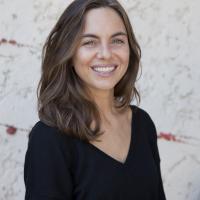
Finis Terrae University, Chile
Show moreCarolina Castro Jorquera is a Chilean art historian and curator. She currently works as a guest lecturer in the MFA program “Research and Image Making” at Finis Terrae University in Santiago. Her book, Camino de la conciencia: Mira Schendel, Víctor Grippo y Cecilia Vicuña (The Way of Consciousness: Mira Schendel, Víctor Grippo and Cecilia Vicuña), was published by Ediciones Universidad Finis Terrae in 2020. As a curator, she has organized numerous exhibitions across the Americas and Europe. Carolina holds an MA in contemporary art and visual culture from the Museo Nacional Centro de Arte Reina Sofía and a PhD in art history from Autonomous University of Madrid. You can learn more about her work here.
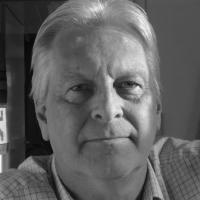
Treborth Botanic Garden, Bangor University, Wales
Show moreShaun Russell is an environmental scientist with 45 years of experience as a teacher and researcher in biodiversity conservation and protected-area management around the world. He held lecturing posts in Britain and South Africa and was formerly dean of the Science Faculty at the University of Namibia. He also worked for the British and South African Antarctic programs. Dr. Russell is currently the director of the Treborth Botanic Garden at Bangor University in Wales, and over the past 20 years he has applied his specialist knowledge of mosses and lichens to habitat conservation in the far south of Chile.
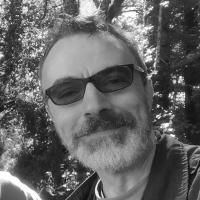
University of Connecticut, USA
Show moreBernard Goffinet is a professor in ecology and evolutionary biology at the University of Connecticut. His research interests focus on the diversity and evolution of mosses and lichens based on field work in the Americas, Asia, and Africa. He also engages in enhancing awareness of these lesser-known organisms through walks, books, and exhibits. He completed his BS and MS at the University of Liège, with a thesis focused on epiphytes in old growth forests, and earned his PhD at the University of Alberta for his study on the evolution of mosses. He has edited and written several books and is currently the president of the International Association of Bryologists. You can learn more about his work here.
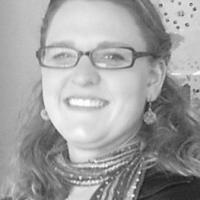
Cape Horn International Center for Global Change Studies and Biocultural Conservation, Chile
Show moreKelli Moses is the international coordinator of the Cape Horn International Center and the Sub-Antarctic Biocultural Conservation Program for the University of Magallanes. Moses has a bachelor’s degree in biology and a master’s degree in environmental sciences from the University of North Texas. She has held various roles with the Sub-Antarctic Biocultural Conservation Program both in the United States and Chile since 2005 and with the Cape Horn International Center since 2022. She coordinates international visits to the Omora Ethnobotanical Park, field courses and student research experiences, and the editorial line on biocultural conservation of the program.
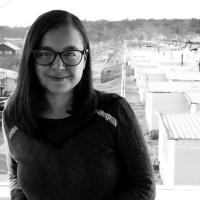
Cape Horn International Center for Global Change Studies and Biocultural Conservation, Chile
Show moreTamara Contador is a professor and researcher at the University of Magallanes in Chile. She is a researcher at the Cape Horn International Center (CHIC), at the Millennium Institute for Biodiversity of Antarctic and Subantarctic Ecosystems (BASE), and at the Millennium Nucleus of Invasive Salmonids (INVASAL). Her research focuses onnadaptations of terrestrial and freshwater invertebrates to climate change, particularly in subantarctic and antarctic ecosystems. She works at Omora Park in Navarino Island, where she seeks to promote the integration of environmental ethics and ecological sciences to contribute to biocultural conservation in freshwater ecosystems.
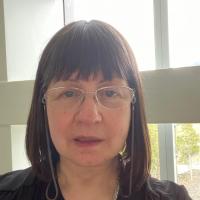
Cape Horn International Center for Global Change Studies and Biocultural Conservation, Chile
Show moreFrancisca Massardo is a professor at the University of Magallanes (UMAG), Chile. She is an agronomist, holds an MS and a PhD in plant physiology from the University of Chile, and is a postdoctoral fellow in biocultural conservation at the University of Connecticut, US. Since 2000 she has led conservation efforts: the creation of the Omora Ethnobotanical Park, the Omora Foundation, and the Cape Horn Sub-Antarctic Center. She is also the chief editor of the Sub-Antarctic Biocultural Conservation Program at UMAG, and principal investigator of the Cape Horn International Center (CHIC). She has integrated basic and applied science for conservation with focus on the UNESCO Cape Horn Biosphere Reserve, Chile.

Cape Horn International Center for Global Change Studies and Biocultural Conservation, Chile
Show moreMiguel Garcia Corrales is a professional and academic with more than 20 years of experience in the development of studies and projects related to landscape, heritage, environmental evaluation of projects, and sustainable tourism, with a focus on Latin America. His research and projects have focused on the study of the natural and cultural landscape as fundamental assets for the endogenous development of sustainable tourism. For 10 years he has been an associate professor at the School of Architecture and Landscape, Central University of Chile, project director at the Institute of Tourist Heritage, Central University of Chile, and since 2023 he has been responsible for the tourism area of the Cape Horn International Center (Basal-ANID) led by the University of Magallanes.

Cape Horn International Center for Global Change Studies and Biocultural Conservation, Chile
Show moreAlejandra Tauro is an Argentinean biologist who works at El Colegio de Puebla, at the National Science and Technology Council, Mexico, and at the Cape Horn International Center (CHIC), Chile. She graduated as a biologist and professor of biology at the National University of Córdoba, Argentina. She obtained a master’s degree and a doctorate in sciences from the National Autonomous University of Mexico, and a master’s degree in sustainable development from the University of Lanús / FLACAM-CEPA, Argentina. Her research focuses on ecology and conservation biology, incorporating a biocultural perspective and inter- and transdisciplinary methodologies to address the heterogeneity of links between human well-being and nature. Tauro has worked at the interface between academia and civil society organizations, contributing to biocultural conservation practices that foster community and inter-actor collaboration.
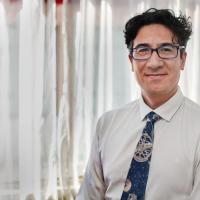
European Southern Observatory
Show moreLuis Chavarría holds a BS and a PhD in science with a major in astronomy from the University of Chile. He carried out his doctoral-thesis research at the Harvard-Smithsonian Center for Astrophysics and has done postdoctoral studies in Chile, France, and Spain, focusing on projects related to the star-formation process. In 2013 he joined the National Agency for Research and Development (ANID) as support astronomer and Chilean coordinator for the APEX (Atacama Pathfinder Experiment) telescope. In 2016 he became the director of the Astronomy Program, coordinating strategies to strengthen international collaboration and support the immense and growing scientific infrastructure installed in Chile to the benefit of the local scientific community. In 2021 he joined the European Southern Observatory (ESO) as the ESO representative in Chile. He became the first Chilean citizen to fill this position in the 60 years of ESO.

European Southern Observatory
Show moreBruno Leibundgut’s career as an astrophysicist spans more than 30 years. His scientific contributions range from the nucleosynthesis in stellar explosions to the evolution of the universe. After completing his PhD at the University of Basel, Switzerland, he held positions as junior researcher at Harvard University in Cambridge, MA, and the University of California, Berkeley. For nearly 30 years he has been an astrophysicist at the European Southern Observatory (ESO). He held various positions within this intergovernmental organization, among them director for science. Bruno Leibundgut is deeply involved in the operations of large telescopes and currently serves as program scientist of the Very Large Telescope (VLT). Since 2012 he has also held an honorary professorship at the Technical University of Munich.
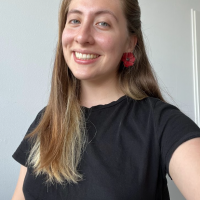
European Southern Observatory
Show moreTeresa Paneque Carreño has an MS in astronomy and is currently a doctoral candidate at the European Southern Observatory, through the International Max Planck Research School program, and at the University of Leiden. She is also a topselling author of the multivolume children’s books El Universo Segun Carlota (2021–2023) and does astronomy outreach through social media (@terepaneque). Her scientific interests revolve around planet-formation processes and the distribution and abundance of molecules in protoplanetary disks.
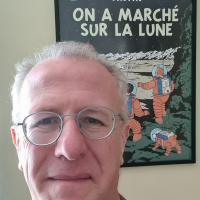
European Southern Observatory
Show moreAlain Smette has been an operations staff astronomer at the European Southern Observatory since 2004. He received his PhD from the University of Liège, Belgium, in 1994. After a postdoc at the Kapteyn Astronomical Institute, Groningen, he became a research associate at NASA’s Goddard Space Flight Center, then returned to Liège in 2001. His research interests include the study of absorption lines in the spectra of quasars and gamma-ray burst optical afterglows, gravitational lensing, and active galactic nuclei. As a member of the Science Operations department at Paranal, he was successively the instrument scientist for the VISIR then CRIRES instruments, and instrument operations team coordinator. He is currently a system scientist in the system engineering group at the Paranal Observatory.
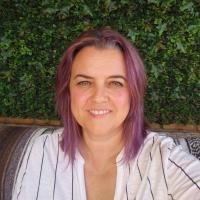
European Southern Observatory
Show moreItziar de Gregorio-Monsalvo is an astrophysicist at the European Southern Observatory (ESO) in Chile, where she acts as head of the Office for Science and as faculty chair. Before, she was the head of the Atacama Large Millimeter Array Program management group. She did her PhD at the Spanish National Institute for Aerospace Technology, using the NASA Deep Space Network antennas to perform star-formation studies at centimeter wavelengths. She joined ESO in 2006 as an ESO ALMA fellow with duties at the Atacama Pathfinder Experiment (APEX) telescope, the Atacama Test Facility in Socorro, New Mexico, and the Operations Support Facilities near San Pedro de Atacama, in Chile. Her research focuses on stars, brown dwarfs, and planet formation.


